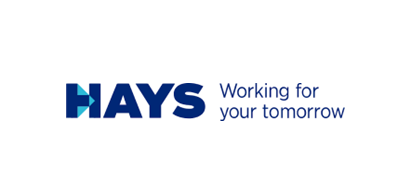- Almost a third (32%) of organisations in Scotland are currently using AI tools, compared to 26% six months ago
- One in five workers (19%) now using an AI tool as part of their role
- Well over half (59%) of employers expect to allow their staff to use AI in the future but will monitor usage, whilst 20% expect to ban the use of AI in the future
- Three in five (61%) workers don’t feel their employer is helping them to sufficiently prepare for the use and adoption of AI in the workplace
As the discussion around how Artificial Intelligence (AI) may impact on working life continues, new research by Hays has found that more organisations are currently using AI tools than six months ago, rising from 26% to almost a third (32%).
The research, based on a survey of nearly 15,000 responses from employers and professionals, including 886 from Scotland, found that whilst AI usage in the workplace is on the rise, the number of people who do not feel their employer is helping them to prepare for its use is on the increase at 61%.
Although the number of professionals who are using AI tools has increased in the last six months, the majority of professionals in Scotland (80%) are not using AI in their current role.
“Attitudes towards how the growing presence of AI in the workplace could impact jobs are mixed,” says Justin Black, business director of Hays specialising in technology. “The research shows that just over a fifth (21%) of professionals think AI tools will have a positive impact on their job. There are still only a small number of professionals who believe AI will negatively impact their job, dropping in the last six months from 12% to 6%. And a small number of organisations in Scotland have already banned the use of AI in the workplace.
“Although some employers would prefer to turn a blind eye to AI and ban their staff from using it, we’re seeing more organisations eager to reap the benefits AI has to offer. It is, however, essential for employers to put in place sufficient opportunities to train and upskill individuals to be able to get the best out of these new technologies.”
Black cites GDPR concerns as a barrier to using AI as many organisations are not willing to expose their IP and data to an AI system. There are also concerns around the extent to which AI tools and technologies can be trusted, as they can make mistakes and produce inaccurate information.
“There are also some skills shortages”, continues Black, “but this is due largely to there not being enough people in the field already. When OpenAI was launched for free, people came to see the value it could bring very quickly and this created a surge in demand. However, skills in AI have not scaled as quickly as the technology, thus leaving a large gap in skills vs demand.”
Positively, the number of employers experiencing extreme skills shortages when it comes to AI usage has reduced from 48% to 36% in the last six months. The research also reveals a decrease in the number of professionals who believe they don’t have any of the right skills to make the best use of AI, from almost a third (29%) six months ago to just over a quarter (26%) today.
“Employers are still falling short when it comes to supporting their staff in upskilling to take advantage of AI,” continues Black. “And the number of employees who feel their employer isn’t helping them to prepare for the use and incorporation of AI in the workplace is on the increase.
“In order to move with the times and make progress, employers must upskill staff and bring them along the journey as they invest in AI. It’s also crucial they communicate their intentions around developments in AI. This includes being honest with staff about how they need to be using AI tools, and if usage will be monitored.”

